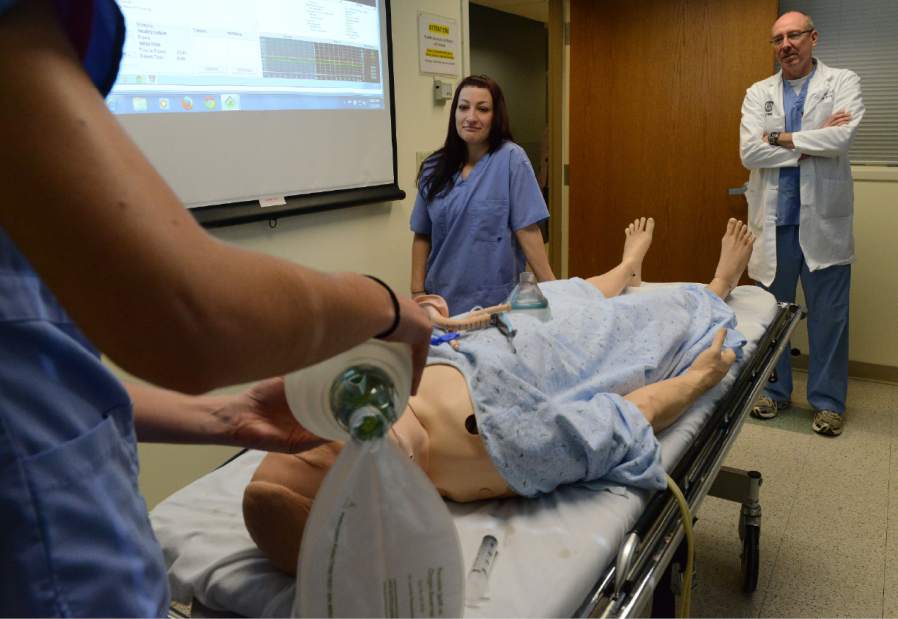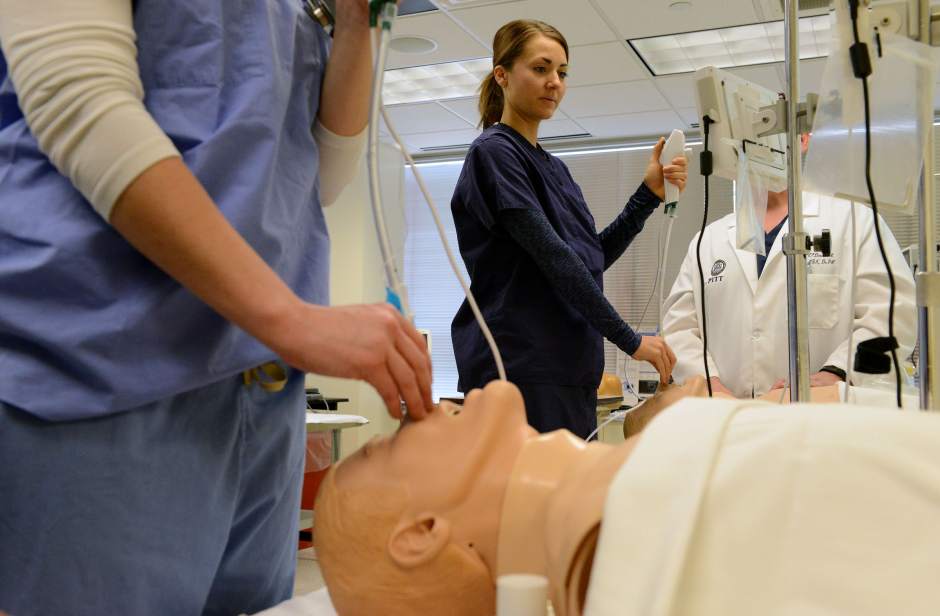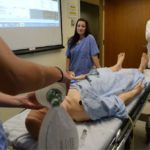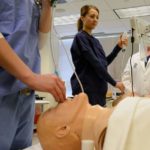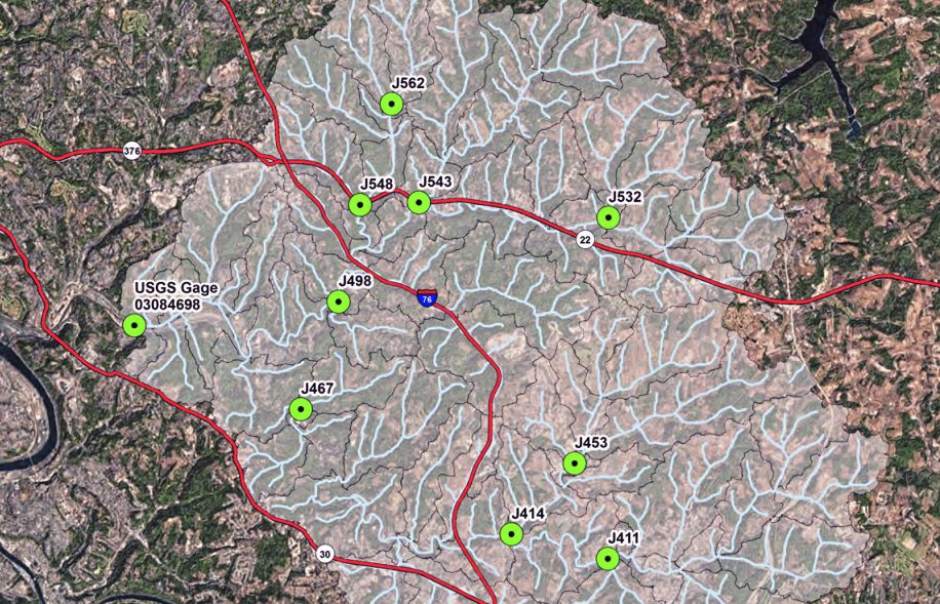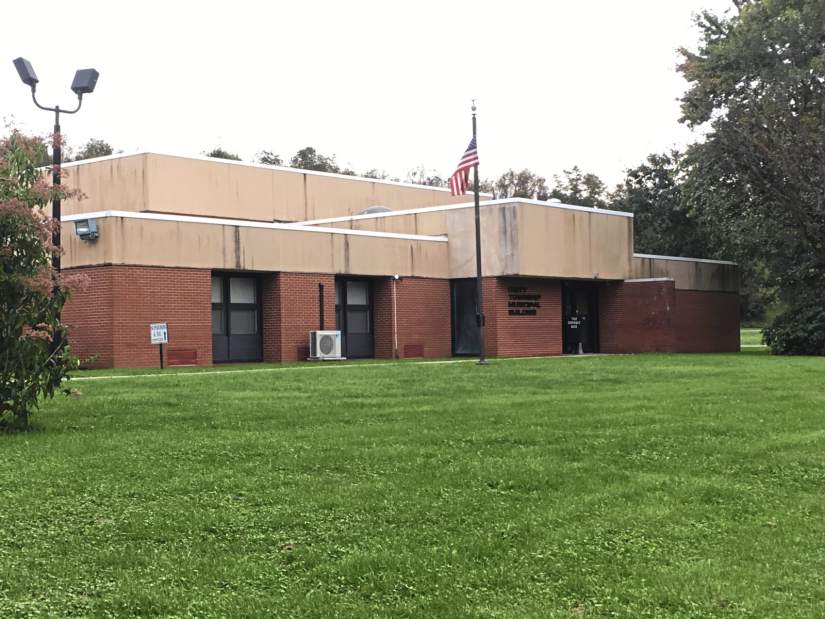John O'Donnell was stunned when Dr. Paul Phrampus tapped him on the shoulder midway through a course he was running at the University of Pittsburgh's Wiser Institute last week.
“He said ‘Dude, you guys are number one,' ” O'Donnell said.
Phrampus was referring to the U.S. News & World Report's Best Graduate Schools 2016 guidebook. Pitt's master's program in nurse anesthesia had been in the top 10 schools in the country since 1998. But this year, the highly competitive master's program, which accepts about one in six applicants, finally claimed the top spot among graduate programs that train nurses in the highly specialized science of anesthesiology.
O'Donnell, the director of the program, was a graduate of Pitt's first nurse anesthesia class in 1991.
The profession counts Civil War nurses who helped administer battlefield anesthesia among the early nurse anesthetists. But the practice has evolved over the years, and O'Donnell said the demand for Certified Registered Nurse Anesthetists has expanded dramatically.
“The main drivers have been the need for more surgical services and an alternative to an all-anesthesiology practice,” O'Donnell said.
He said hospitals might have four operating rooms, with one anesthesiologist and several certified registered nurse anesthetists working in conjunction with the specialist to ensure that patients receive the proper anesthesia.
Pitt's program is known for its intensive use of simulators, sophisticated computerized mannequins that students spend hours working with before they move on to human patients. It features a “distant rotation,” in which students can study in Cambodia.
When Lisa Nause, a second-year student in the program, was ready to take the next step in her nursing career, she said O'Donnell's program was a natural.
Nause, 28, originally of Allentown, earned her undergraduate degree at Pitt, worked at UPMC Presbyterian for five years and fell in love with the city.
“I'll be done in December, but it was great to hear that we'd been ranked number one,” she said.
Tuition for the program is steep at $36,480 a year for Pennsylvania residents and $42,072 for out-of-state students.
But there are payoffs for 28 months of hard work and the thousands of dollars in tuition and costs.
O'Donnell said graduates typically can earn a base starting salary of about $125,000 a year in Western Pennsylvania. And Pitt's program, which has trained faculty for many other schools, boasts 100 percent placement within six months of graduation.
Pitt's School of Nursing, which includes the nurse anesthesia program, ranked fifth nationally in the new ranking of nursing schools that offer master's or doctorate programs.
Debra Erdley is a staff writer for Trib Total Media. She can be reached at 412-320-7996 or derdley@tribweb.com.


